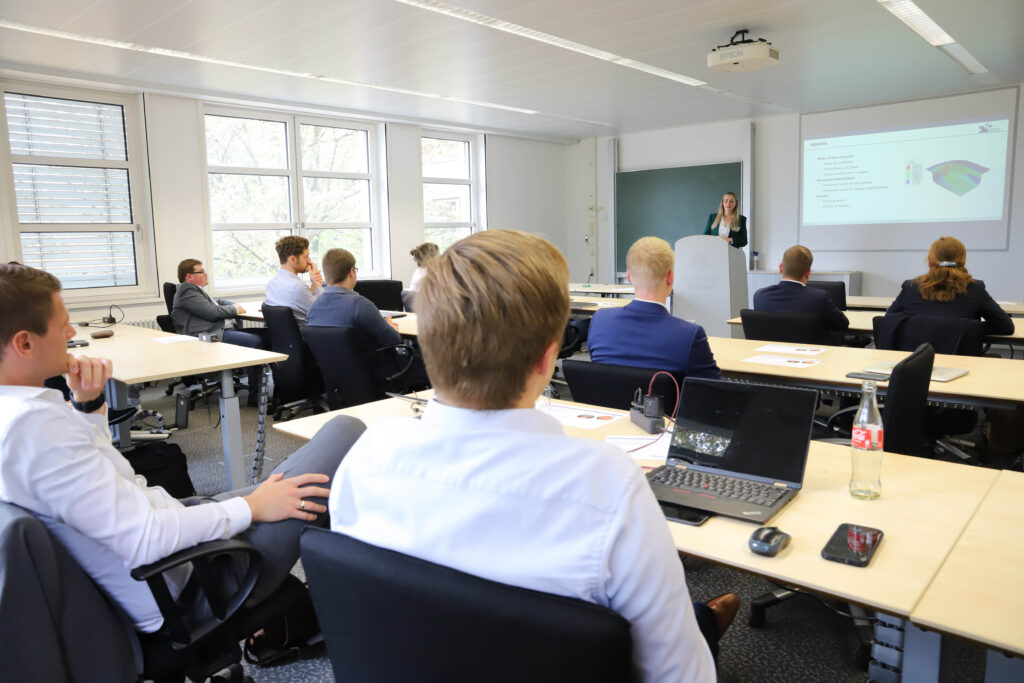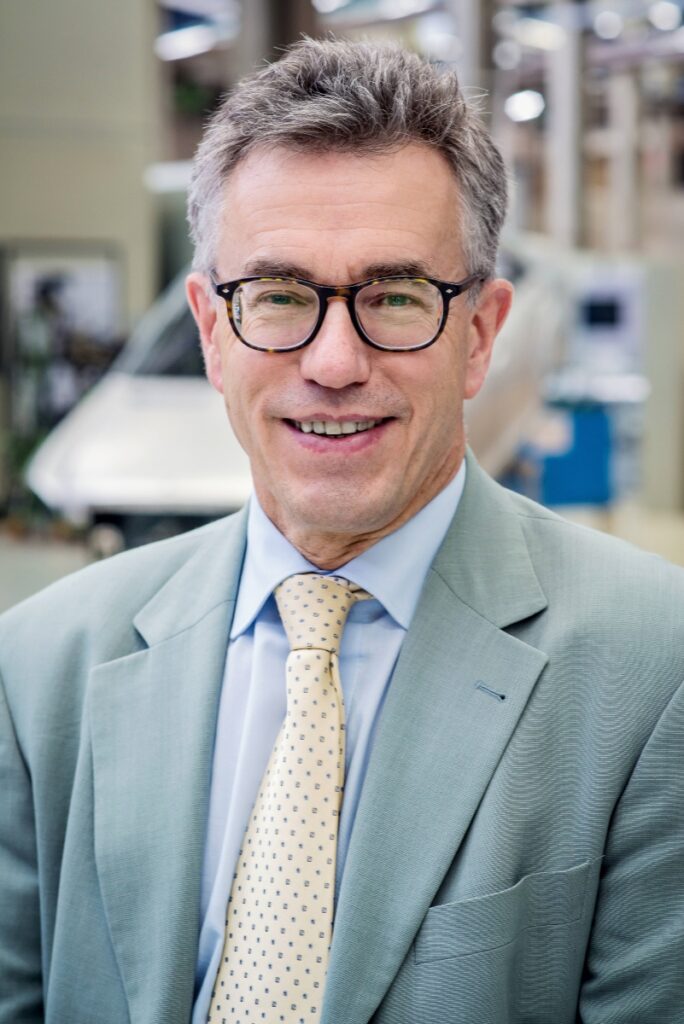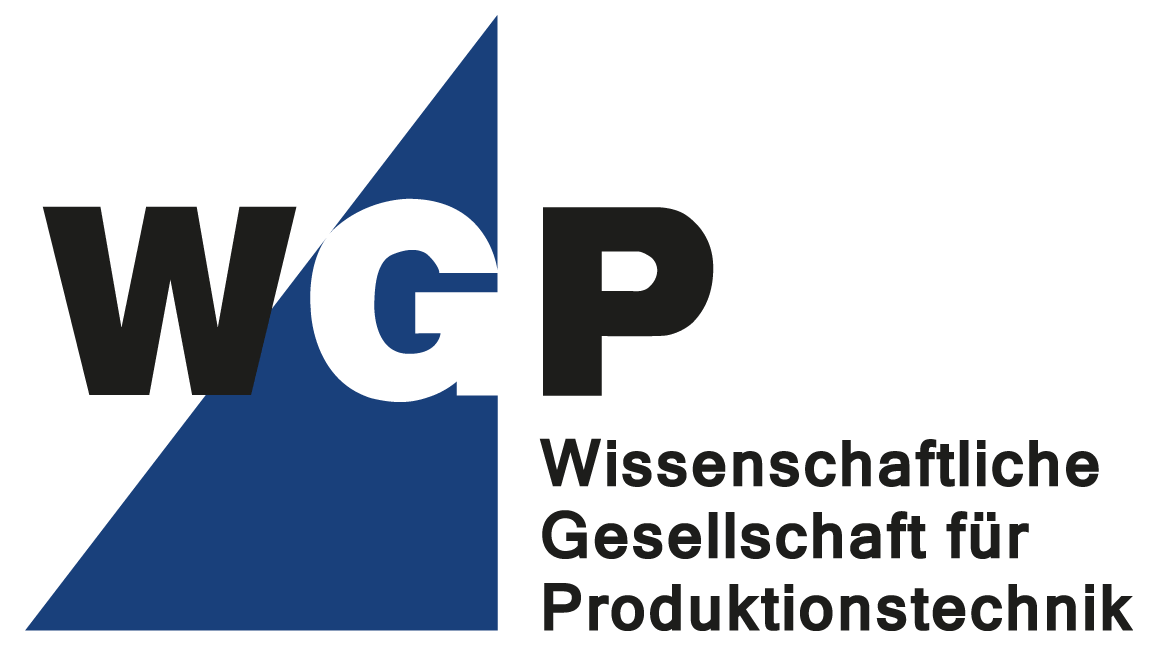
Stuttgart, October 27, 2022 – The WGP (Scientific Society for Production Engineering) dedicated its 2022 annual congress in mid-October in Stuttgart to the topic of “Production at the Frontier – Strategies for Using Data in Planning and Production”. With a view to the new global economic situation and the goal of creating resilient production systems and value chains, young researchers presented numerous innovative solutions in the fields of artificial intelligence and novel approaches in production planning. “The assistants of the WGP institutes have addressed highly topical and strategically important issues of our industrial environment, and in some cases also demonstrated solutions that can be put into practice at quite short notice,” said a pleased Prof. Mathias Liewald, head of the Institute of Forming Technology (IFU) at the University of Stuttgart and co-organizer of the two-day congress.
In fact, according to a recent 2022 survey by business insurer Allianz Global Corporate & Specialty (AGCS), company representatives see business interruption as by far the biggest business risk in the coming 12 months. This is feared by 55 percent of respondents, putting this concern well ahead of fear of a cyberattack. The result is not surprising, given that such interruptions and their economic impact are realistic when looking back at 2020 and 2021, and can also be observed in the current year. One of the main causes of interruptions in production are supply problems of special components, materials or microprocessor-controlled electronic components.
New approaches for global production networks
In the future, corporate decisions will therefore have to be closely coordinated and geared more than in the past to the global production network (GPN). This is the only way to ensure flexible production geared to external circumstances. A team from the Institute of Production Technology (wbk) in Karlsruhe therefore developed a continuous process to make GPN as responsive as possible to both predictable and unpredictable influencing factors. To this end, the scientists created specific scenarios based on such factors, which were then incorporated into the planning of the GPN with the help of a digital twin.
Intelligent disassembly makes closed-loop processes possible
Sustainable, resource-conserving production is also a new focus of production technology. In Stuttgart, for example, WGP researchers reported on sustainable approaches to the dismantling of expensive capital goods. It is characterized by a high degree of uncertainty regarding the product’s condition and possible damage patterns, which makes reprocessing difficult. Young talents from the Institute of Assembly Technology (match) in Hanover therefore used the example of aircraft engines to develop new standards for assessing the technical condition of the components to be recycled. This is because, despite the rapid increase in sensor technology for condition monitoring, it has so far only been possible to react spontaneously to the condition of the product due to numerous interfering influences. The team from Hanover was able to use operational usage data and machine learning to predict disassembly forces and times and use this knowledge to plan adapted disassembly processes that are gentle on components. “This research direction is currently given high importance in WGP, as we are challenged here in all production technologies,” emphasizes Liewald.
Personnel development in the face of a shortage of skilled workers
In view of the shortage of skilled workers already noticeable in many companies, the question of personnel or further qualification of the workforce was also addressed. The Institute for Manufacturing Engineering and Machine Tools (IFA) in Hanover presented a new, scientifically oriented approach, in which personnel development can be planned sustainably on the basis of production plans. In this process, the organizational and technical requirements for the complete and timely processing of the order are analyzed and compared with the competencies and skills of the employees. In this way, the question of whether all the necessary competencies are available in the company on time can be answered in the planning phase of orders. In addition, personnel development and qualification can be planned in a more targeted manner.
The current paradigm shifts in production technology toward resilience and sustainability imply increasingly urgent interdisciplinary research. “Production science no longer just answers questions about innovative technologies. Rather, in light of current developments, it must define itself in the context of overarching questions and answer them in interdisciplinary teams,” Liewald sums up. “These current trends are very clearly reflected in this year’s WGP annual congress. Our research is thus making an important contribution to adapting production to the challenges of our time.”
As always, all presentations will be published in an abstract by Springer-Verlag.


Download:
Cover image: Supply chain disruptions can be prevented, Source: Adobe Stock 512228679 Ekkapon
Image 2: Current research results are discussed at the WGP annual congress, Source: Maxim Beck, IFU Stuttgart
Image 3: Prof. Mathias Liewald, co-organizer of the WGP Annual Congress and head of the Institute of Forming Technology (IFU), University of Stuttgart, Source: IFU Stuttgart
